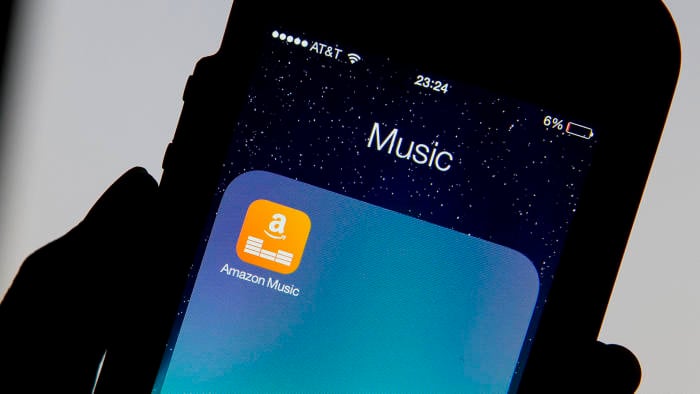Find out the week’s top mobile stories from around the world.
This week.. Google workers listen to your “OK Google” queries, US authority demands Facebook puts Libra on ice, Amazon becomes the fastest-growing music streaming service… and much more…

Google workers listen to your “OK Google” queries—one of them leaked recordings
Ars Technica
Google today defended its practice of having workers listen to users’ Google Assistant queries, following the leak of 1,000 voice recordings to a media outlet. Google also said it will try to prevent future leaks of its users’ voice recordings.
VRT NWS, a news organization run by a public broadcaster in the Flemish region of Belgium, said it “was able to listen to more than a thousand [Google Assistant] recordings” that it received from a Google subcontractor.
Read more…
US authority demands Facebook puts Libra on ice
Mobile World Live
The head of the US central bank called on Facebook to put plans to create a cryptocurrency on hold until its serious concerns had been addressed, Reuters reported, throwing doubt on the social network’s ambitious mobile wallet plan.
In a statement to a US House of Representatives committee, Federal Reserve chairman Jerome Powell said Facebook’s Libra currency raised “many serious concerns” around privacy, money laundering, financial stability and consumer protection.
Read more…
Amazon becomes fastest-growing music streaming service
Financial Times
Amazon is adding subscribers to its music-streaming service at a faster rate than rivals such as Spotify, Apple and Google, making music the latest industry to be disrupted by the ecommerce group.
The number of people subscribing to Amazon Music Unlimited has grown by about 70 per cent in the past year, according to people briefed on its performance. In April Amazon had more than 32m subscribers to all its music services including Unlimited and Prime Music.
Read more…
Brave takes its privacy-based ad platform to its Android browser
Mobile Marketing Magazine
Two months after its advertising platfom built on privacy for its desktop users, Brave is making it available on its Android app. Users who consent to viewing privacy-preserving ads are rewarded with 70 per cent of the ad revenue share in Basic Attention Tokens (BAT).
When a user opts into Brave Rewards (click on the triangle at the right of the URL bar in the Brave browser app), they start seeing Brave Ads and accumulate BAT, which they can claim on a monthly basis via the integrated wallet in Brave. Users can customize how many ads they’d like to see (one to five per hour), or choose not to see any ads.
Read more…
Avoiding Prying Eyes: Glimpsing Into the Future of Mobile Privacy Powered by Blockchain
Coin Speaker
Over time, technology has eroded our privacy protection due to the level of connectivity. The case remains that most things we do on our mobiles or even things that organizations do are now in the public domain. It is increasingly popular for third-parties to monitor, store and use personal and organizational data to gain insights into our behavior.
They use them to spot trends, set user preferences and track activities. In some cases, business models rely on the collection of personal and organizational data for the purpose of reselling.
Read more…
Tinder CEO says he’s not worried about competition from Facebook
CNBC
Dating app Tinder’s position as an influential brand among young adults can help it withstand competition from Facebook, the firm’s CEO said Thursday.
About a decade ago, when various social networks competed for users, there was a view that one digital community would emerge victorious, and Facebook was considered the favorite, Tinder chief Elie Seidman told CNBC’s “Street Signs. ”
“And we’ve seen over the past, call it seven-eight years, that it’s really not the case,” he said. “I’m a big believer that you want to really focus at what you’re good at. Looking at the competition, it’s going to drive you into their thinking, and you really want to have distinct thoughts.”
Read more…
Social commerce surging amid popularity of mobile tech
China Daily
The market scale of China’s social commerce sector is expected to reach 2.07 trillion yuan ($302 billion) in 2019, an increase of 63.2 percent year-on-year, as the use of mobile technologies to access social media has become increasingly popular in China, a new industry report said.
The sales revenue from social commerce platforms will account for 20 percent of the country’s online retail market this year, and this proportion will amount to more than 30 percent in 2020, according to the report issued by the Internet Society of China and Chuangqi Social Commerce Research Center.
Read more…
German banks are moving away from SMS one-time passcodes
ZDNet
Multiple German banks have announced plans to drop support for SMS-based one-time passcodes (OTP) as a login authentication and transaction verification method.
Postbank plans to drop support in August, while Raiffeisen Bank and Volksbank plan to do so in the fall, Handelsblatt reports.
Deutsche Bank and Commerzbank also plan to drop support for SMS OTP but have not announced a deadline, while Consorsbank plans to discontinue it by the end of the year.
Read more…
Building the mobile carrier of the future with AI
Venture Beat
While we are in the midst of one of the most exciting times in telecommunications history — driven by things like 5G, Wi-Fi 6, virtualization, and transformation of networks – it’s easy to focus on what the future might bring, as opposed to what operator networks are already capable of doing today. The reality is that mobile carriers don’t have to wait for the future to arrive because they are already sitting on top of a veritable goldmine.
The “goldmine” is made up of massive amounts of data that traverse telecom networks. Today’s core networks are made of expensive, heavy-duty equipment optimized for transporting this data. They weren’t designed with data analytics in mind.













